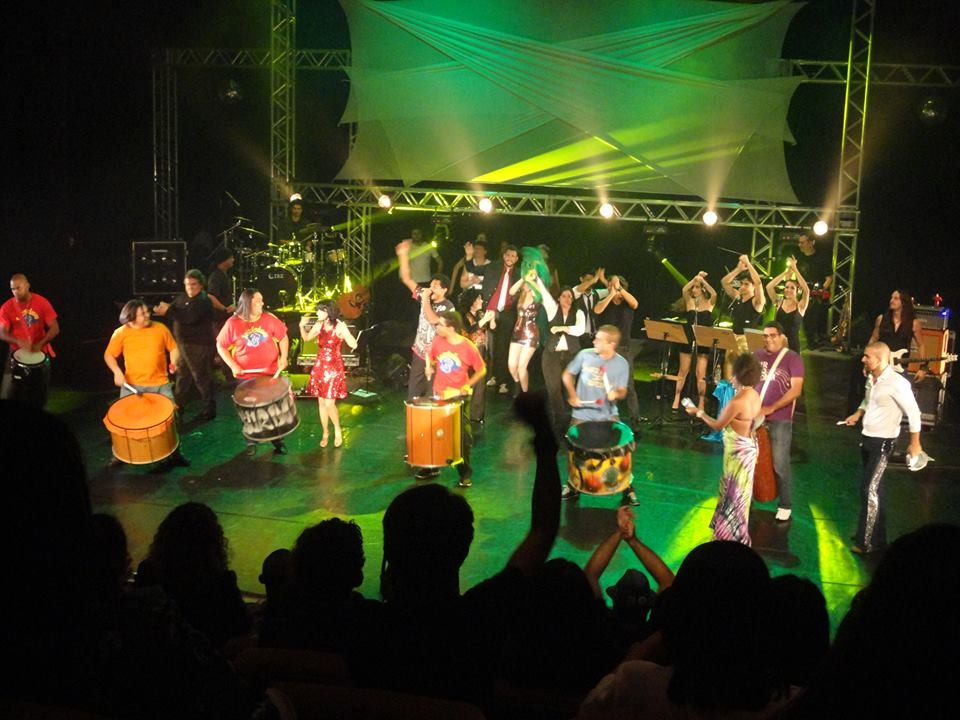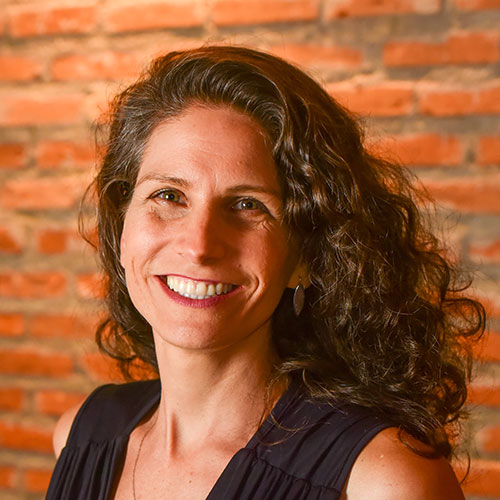With music made by deaf people, Banda Surdodum enchants the public wherever it goes
The group turns 30 this year; members sing and play percussion instruments


They play the drum, snare drum, peal, kettledrum, rattle, crescent and other percussion instruments, in addition to singing. With one detail: many are profoundly deaf. Banda Surdodum, founded by musicians Ana Soares, Reinaldo Braz and Chiquinho Batera, emerged in Brasília in 1994 and since then has never stopped surprising the public with its performances.
With the support of listening musicians on vocals, drums, bass, guitar and acoustic guitar, the group pioneered inclusion. “We started with five and today we have 22, 13 of whom are people with disabilities, including wheelchair user Arnaldo Barros, who composes, sings and plays the guitar”, recalls teacher and musician Ana Soares.
For those wondering how a deaf person learns to play an instrument, she explains: “we start from the principle of vibration, it’s a question of physics and acoustics. Sound is made of sound waves and our hearing is not just through the air, we have hearing through the bones. So, our body vibrates, our body listens.”
Voices and percussion
Daughter of a female singer, Ana, who is one of the listeners and founders of the group, began her career in music at the age of 16 in the afro block Asé Dudu, in Brasília. “I joined the group because I wanted to play percussion, but one day the vocalist was absent and I took the microphone. One of the directors saw it, liked it and said, ‘from now on, Ana will sing’”, he recalls.
The Banda Surdodum emerged shortly afterwards. Ana had just graduated from teaching and started teaching at CEAL Ludovico Pavoni, a school for deaf children in Brasília.
“When I was 19, I went to work at Ludovico Pavoni. I was still in the afro block and Clésio da Cruz, who was also from the school, gave the idea of doing a percussion performance. He gave the band its name and even recently returned to celebrate 30 years on the road.”
The school children who learned to play and sing in the past became the instructors of the workshops that the band offers today. “The band is our business card, the art product, but we have other projects, we do workshops and they are the ones who give classes to other deaf people, and to hearing people too”, says the musician.
Banda Surdodum
The percussion and voice classes offered by Banda Surdodum are free and open to all deaf children and teenagers, regardless of having other disabilities. To publicize its work, the band holds workshops in the various administrative regions of Brasília and children who are interested continue with weekly classes at the band’s headquarters, which is located in Asa Norte.
“Many listeners say that they can’t do even a third of what our students do, but making music is very inherent to human beings, some have more ability than others”, comments Ana.
In addition to the presentation made by deaf musicians and repertoire made especially for people with disabilities, Banda Surdodum also performs entirely in Libras. “We have the presence of the performer from the beginning and I think this opens many doors, brings social awareness, of being able to provide music for this audience”, he is proud.
In the Beat of the Heart
Building on the basic principle of vibration, music instructors use body rhythm to teach students sound. “Percussion instruments, like the drum, provide a lot of vibration. So we always start teaching with the deaf, an instrument that has this vibratory support, so they have this rhythmic foundation, regardless of the instrument they play”, explains Ana.
The musician has been developing several teaching methodologies and has already created another method using the guitar. “When we use harmonic instruments, it’s much more complicated, because there are notes and everything.” For the future, the expectation is to expand inclusion for people with deafblindness, using a new methodology with touch and Tactile Libras.

Workshops and workshops
With original songs, a recorded album, a trajectory recorded in a documentary and several awards in education and inclusion, Banda Surdodum is also an institute, offering workshops and workshops in theatre, art, graffiti, photography, inclusive pedagogy, and more.
Among the projects are Surdodunzinho, with early childhood children, Vovôdum, for seniors and Lacradum, aimed at LGBTQIA+ audiences. “The trajectory is very long, making art in Brazil is complicated, even more so with PWD artists. Our biggest struggle to date is paying for our headquarters, but there are so many success stories that I think this is what makes us persevere”, says Ana.
The band is made up of musicians who have known each other for a long time, many since the beginning of its foundation, and when they meet they use the moment to replenish themselves with energy and hope. “At each rehearsal, we remember some story, all with lots of laughter, because there has been a lot of crying, but we only keep the good part.”
Self-esteem and inclusion
For Ana, developing the protagonism of people with deafness is central to the project. “When they enter, I make a demand, which is the question of studying. I had a student who stopped in the fourth grade. I demanded that he go back to school and today he has two colleges and a master’s degree in progress. This is very important.”
There is no doubt that Banda Surdodum generates a positive social impact. “There is a recovery of self-esteem, in this matter of being on the same level as the listeners. Our members always say this, about playing with their hearts, about the emotion when they are with the instrument when they are performing and others are praising them, clapping their hands and shaking their hands”, she comments.
“Music has this transformative power. We did a show at Clube do Choro in Brasília, for example, and what was most impressive is that in addition to people praising the quality of the music, the repertoire and the entire ensemble, they were grateful for the opportunity to meet our band. That was really cool, you know?”, says Ana.
Want to support this cause?
To learn more about Banda Surdodum, visit the profile on social media: YouTube, Instagram and Facebook or contact us by email: bandasurdodum@gmail.com.



